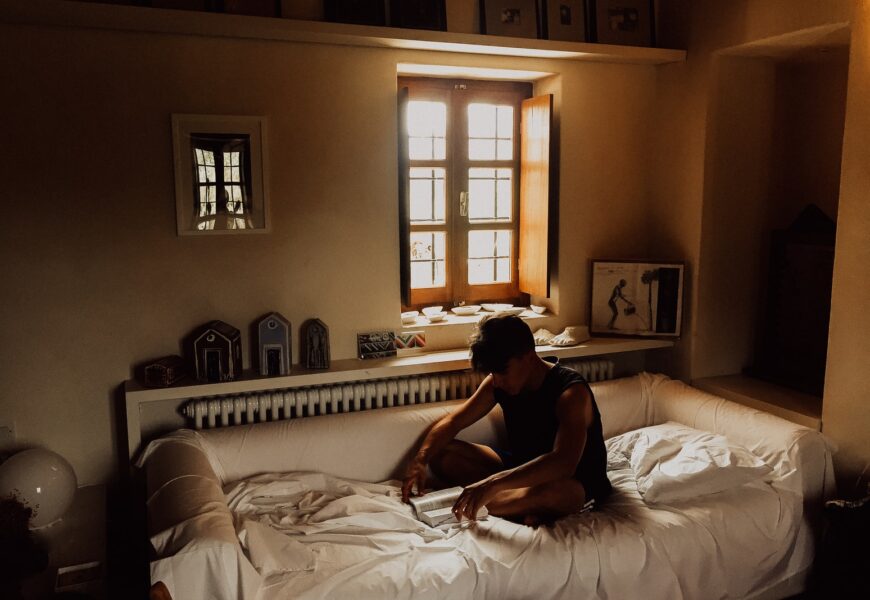Photo courtesy of Unsplash.
After three weeks in Modified Alert-Level Green (and with no plan, it seems, of going into a non-modified level), on Oct. 8, Camels across campus received a news alert from Dean of Students Victor Arcelus informing them of new changes regarding Covid-19 and Connecticut College. As the Northeast enters a period of cooler temperatures, a drop in cases is expected due to the cyclical nature of Covid-19 regarding periods of two-month spikes and then declines.
Booster shots are also now being made available to students at Conn as per new CDC guidelines which state that “adults aged 18–64 years who work or reside in certain settings (e.g., health care, schools, correctional facilities, homeless shelters) may be at increased risk of being exposed to Covid-19, which could be spreading where they work or reside. Since that risk can vary across settings and based on how much Covid-19 is spreading in a community, people aged 18–64 years who are at increased risk for Covid-19 exposure and transmission because of occupational or institutional setting may get a booster shot after considering their individual risks and benefits.”
The College currently plans to hold a clinic for vaccine booster shots in early November, but students are welcome to get them off-campus. They also encourage students to get flu shots this year, and plan to host a clinic on Oct. 13 at Student Health Services from 12pm to 3pm, to prevent a flu outbreak on campus.
As the College looks forward to this anticipated drop in cases, they plan to increase gathering sizes in the River Ridges and Winch apartments from 15 to 25. Students will soon be able to get Social Host Training, run by CC Curtiss, director for Wellbeing and Health Promotion, allowing students with this form of housing to to host gatherings where students of age can drink alcohol.
While students earlier in the semester were banished to hotels in the surrounding area after testing positive for Covid-19, they will now stay on campus. “Moving forward, since we have fewer hotel spaces available to us than we did in early November, we will begin to transition to having students isolate in place whenever possible rather than moving to a different location on campus or off. This enables students to be in their own room, with their own belongings, with access to College WiFi, and easier access to College food, medical staff, etc,” Arcelus stated. If students who test positive live in a single, they will remain there. One bathroom on their floor will be converted into an isolation bathroom and other students who live there will have to use another bathroom. If the student has roommates they will be taken to open isolation housing on campus, and if none are available, they will be moved to a hotel. If their roommate subsequently tests positive, they will be moved back into the dorms. For those students living in apartments “if the positive student is isolating within the apartment in a single or if two students in a double are positive, as noted above, the students will isolate in the apartment and the group will share the single occupancy bathroom.”
While the student is still able to spread Covid-19 they will only be allowed to leave their room to use the bathroom, pick up meals from a designated counter at Harris, or go for a walk by themselves. The current policy on campus regarding not having to wear a mask outdoors does not apply to students who test positive.
Jenna Whelan ‘22 views the situation with mixed emotions. “I feel like they took the first outbreak very seriously and went through a lot of work to get everyone with Covid-19 off campus for the safety of the rest of the students. I think it’s almost contradictory that they’re now allowing positive students to stay on campus, walk around in dorms and outside, etc.” She went on to say that “I do think it’s important that positive students are comfortable for the 10 days that they have to isolate, but I feel like it’s a little odd to allow them to stay on campus based on how the first breakout was handled. I do think that it is a good decision in a way because it definitely takes pressure off of dining staff to have to prepare meals and deliver them. There are definitely positives and negatives to the decision, no pun intended.”
Other students view the situation as a positive way to deal with the many stressors that can come with being a college student during a pandemic.
“I feel relieved to not have to worry about being taken off campus because of others’ bad decisions,” said Cam Angliss ‘22.
“With regard to the college’s new isolation protocol, I think this a move in the right direction in following Covid-19 guidelines while minimizing the stress associated with having to completely reorganize one’s circumstances when testing positive,” said Sneh Shah ‘22. “Up until now, it felt as if students cared less about getting sick from the virus and more about having to move to an isolation facility, losing the ability to do at least some of their normal activities, and being subject to meals (which are just plain terrible) at untimely hours. Allowing students to isolate in their rooms (provided they live in singles) lets them continue to engage with the campus on some level. We are finally at a point where the protocol for isolation on campus resembles what it would be if we were not.”
As the year continues and as our attitudes and methods for dealing with the Covid-19 pandemic evolve, it is likely that the College’s protocols for dealing with the virus will also change as we all work to return to a form of semi-normalcy.










